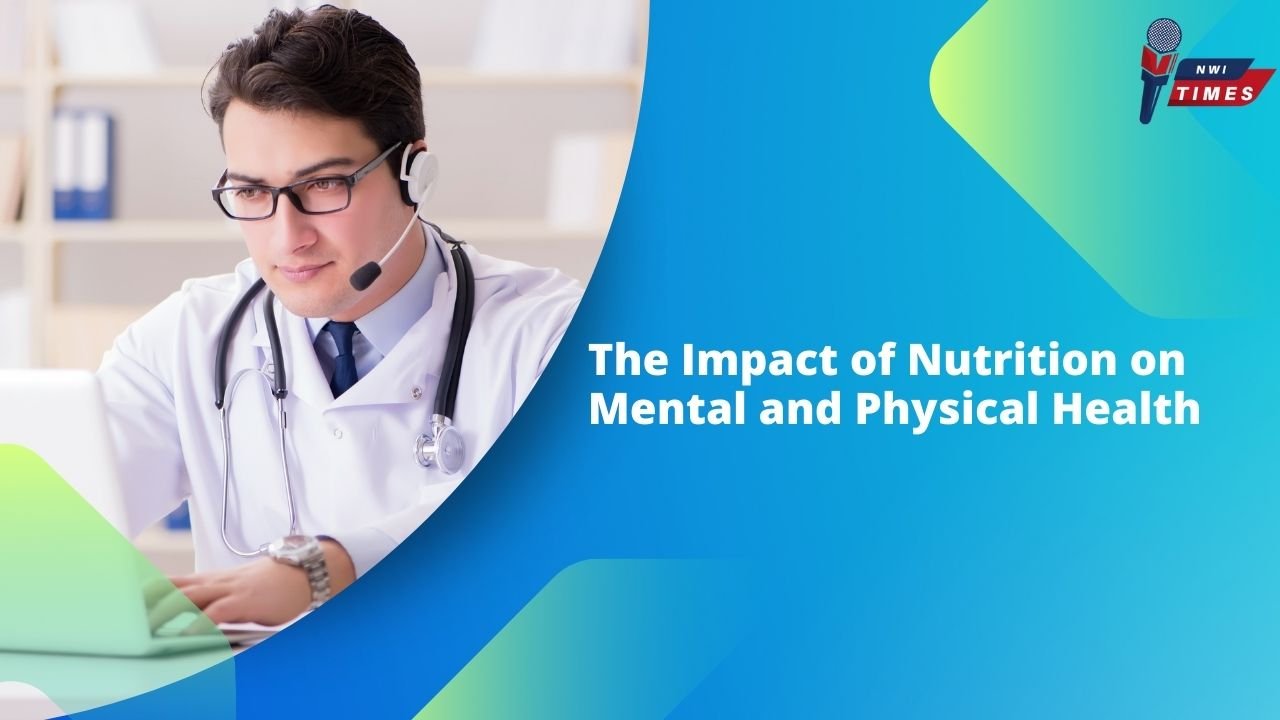Nutrition has a profound effect on our overall well-being. Understanding “The Impact of Nutrition on Mental and Physical Health” can help us make better dietary choices and improve our quality of life. This article explores how nutrition influences both mental and physical health in various ways.
How Does Nutrition Affect Physical Health?
When discussing “The Impact of Nutrition on Mental and Physical Health,” it’s important to consider how nutrition directly affects physical health. The nutrients we consume are crucial for our body’s functioning. For example, calcium and vitamin D are essential for strong bones. Without these nutrients, conditions like osteoporosis can develop.
A well-balanced diet can prevent many chronic diseases. Foods rich in fiber, such as fruits and vegetables, can lower cholesterol levels and aid in digestion. Conversely, a diet high in sugar and unhealthy fats can lead to weight gain and increase the risk of diseases like diabetes and heart disease. Thus, understanding “The Impact of Nutrition on Mental and Physical Health” involves recognizing the role of a balanced diet in disease prevention and maintenance of physical health.
What Role Does Nutrition Play in Mental Health?
The impact of nutrition on mental health is another crucial aspect. Certain nutrients play a significant role in maintaining brain health. Omega-3 fatty acids, found in fish, are known to support cognitive function and mood regulation. Deficiencies in nutrients like B vitamins and iron can lead to mental health issues such as depression and anxiety.
A diet rich in fruits, vegetables, and lean proteins can improve mental well-being. The impact of nutrition on mental and physical health is evident in studies showing that nutrient-rich diets are associated with lower rates of depression and anxiety. Thus, proper nutrition can support a healthier mind and emotional state.
How Can Poor Nutrition Affect Physical Health?
Understanding “The Impact of Nutrition on Mental and Physical Health” also involves recognizing the consequences of poor nutrition. A diet high in processed foods, sugar, and unhealthy fats can contribute to obesity, high blood pressure, and heart disease. For example, excessive sugar intake can lead to insulin resistance and type 2 diabetes.
Nutrient deficiencies can further exacerbate physical health issues. A lack of vitamin C can result in scurvy, while iron deficiency can cause anemia. These conditions highlight how poor nutrition negatively impacts physical health and reinforce the importance of a balanced diet.
How Can Proper Nutrition Improve Mental Health?
The impact of nutrition on mental health is significant. Consuming a balanced diet with plenty of fruits, vegetables, and whole grains can enhance mood and cognitive function. Nutrients like omega-3 fatty acids, vitamins, and minerals are crucial for maintaining mental health and managing stress.
Studies have shown that people with diets rich in fruits and vegetables often experience lower rates of depression. Omega-3 fatty acids, found in fish like salmon, are known to reduce symptoms of depression and anxiety. This demonstrates the positive impact of nutrition on mental health and reinforces the need for a balanced diet to support mental well-being.
What Are the Benefits of a Balanced Diet?
Exploring “The Impact of Nutrition on Mental and Physical Health” highlights the numerous benefits of a balanced diet. A diet that includes a variety of foods helps maintain a healthy weight, supports immune function, and reduces the risk of chronic diseases.
For mental health, a balanced diet can lead to improved mood, better concentration, and enhanced cognitive function. By supporting both physical and mental health, a balanced diet is crucial for overall well-being and health maintenance.
How Does Nutrition Influence Energy Levels?
The impact of nutrition on energy levels is a key factor in overall health. Carbohydrates, proteins, and fats all contribute to the energy our bodies use throughout the day. Including whole grains, fruits, and vegetables helps maintain steady energy levels. Protein-rich foods also provide lasting energy and support tissue repair.
In contrast, consuming too much sugar and processed foods can lead to energy crashes. These foods can cause rapid changes in blood sugar levels, leading to fatigue. Understanding “The Impact of Nutrition on Mental and Physical Health” includes recognizing how diet affects energy and how proper nutrition supports sustained vitality.
What Are the Effects of Nutrient Deficiencies on Mental Health?
Nutrient deficiencies can significantly impact mental health. For example, low levels of vitamin D have been linked to depression and seasonal affective disorder (SAD). Insufficient B vitamins can affect mood and cognitive function, while iron deficiency may lead to fatigue and irritability.
Maintaining adequate levels of essential nutrients is crucial for mental well-being. A balanced diet that includes a variety of nutrients can help prevent deficiencies and support overall mental health. This further emphasizes the impact of nutrition on mental health and its importance in maintaining a positive mental state.
How Can Diet Influence Sleep Quality?
Diet can greatly affect sleep quality, illustrating another aspect of “The Impact of Nutrition on Mental and Physical Health.” Foods high in sugar and caffeine can disrupt sleep patterns. On the other hand, certain foods can promote better sleep. For instance, foods rich in tryptophan, such as turkey and dairy products, help produce melatonin, which regulates sleep.
A healthy diet overall supports better sleep by providing the necessary nutrients for optimal body function. This helps manage stress and improves sleep quality, demonstrating how nutrition impacts both mental and physical health.
Table: Benefits of Proper Nutrition
| Aspect | Benefits | Drawbacks |
| Physical Health | Reduces risk of chronic diseases, improves immune function, supports healthy growth | Poor nutrition can lead to obesity, heart disease, and diabetes |
| Mental Health | Enhances mood, cognitive function, and emotional well-being | Nutrient deficiencies can lead to depression and anxiety |
| Energy Levels | Provides sustained energy, supports physical activity | High sugar and processed foods can cause energy crashes |
| Sleep Quality | Promotes better sleep through balanced nutrition | Poor diet can disrupt sleep patterns and quality |
Conclusion
In summary, “The Impact of Nutrition on Mental and Physical Health” is evident in various aspects of our well-being. A balanced diet is essential for maintaining physical health, supporting mental well-being, and ensuring overall quality of life. Making informed dietary choices can lead to better health outcomes and a happier, healthier life.



